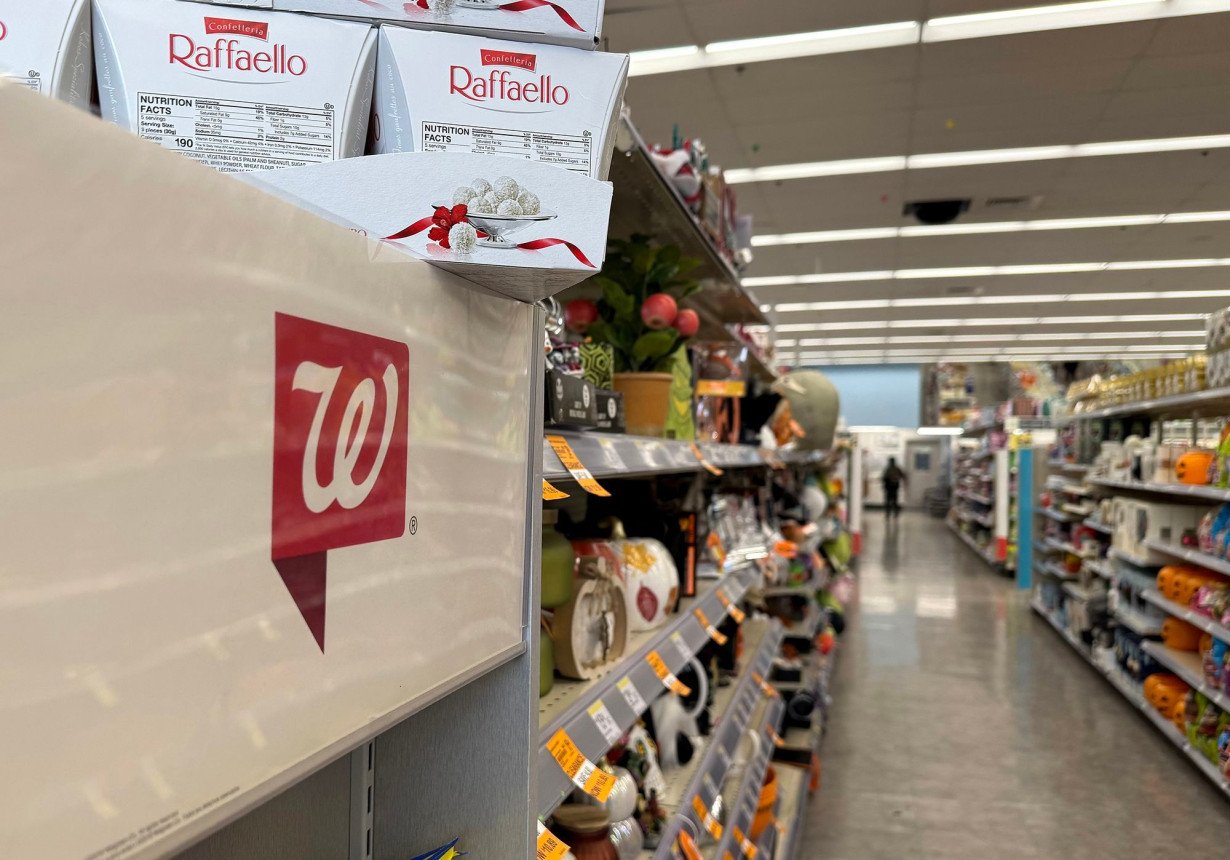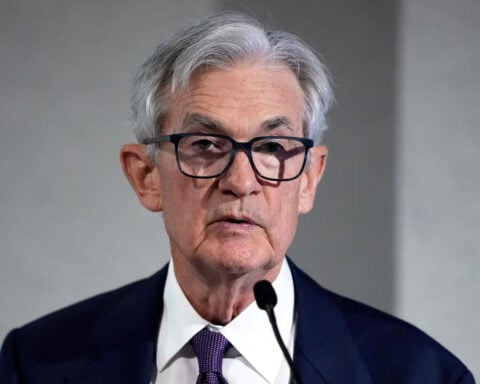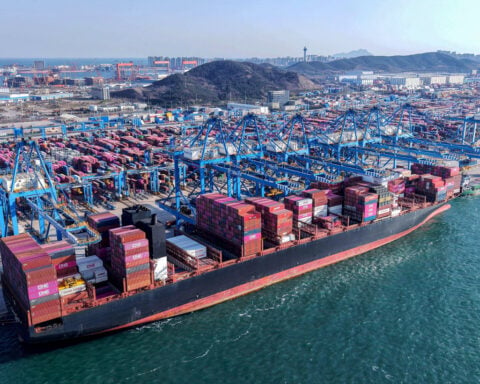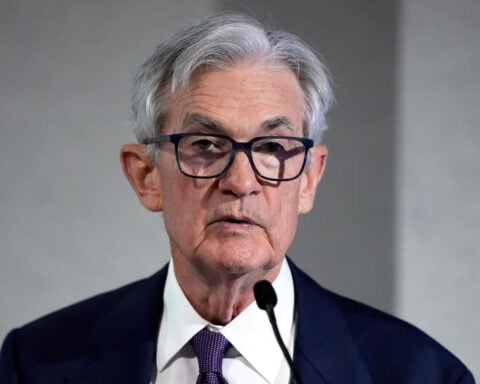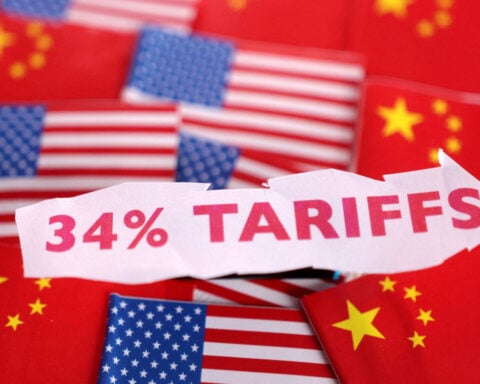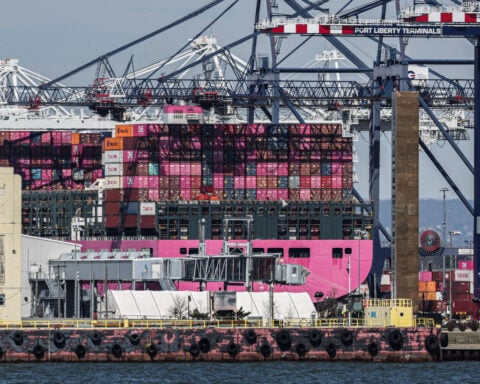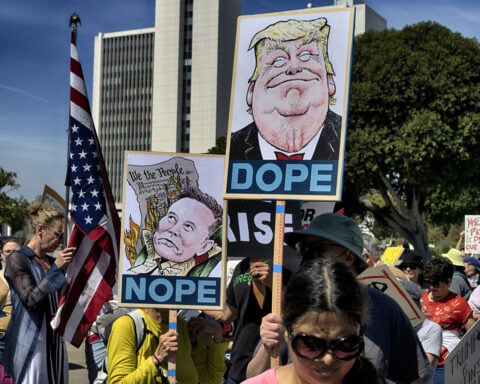New York (CNN) — Walgreens has been attempting a financial turnaround for years, and now it says it’s found a new path to finish it. But if history is any guide, its path is more likely to lead to its eventual demise than long-term success.
Walgreens Boots Alliance, which owns drugstores in both the United States as well as the United Kingdom, Ireland, Mexico and Thailand, announced last week that it would be ending a century as a publicly traded company, and would be sold to Sycamore Partners, a private equity firm.
Less than a decade ago it was America’s largest drugstore chain, and its stock was successful enough to replace iconic conglomerate General Electric in the Dow Jones industrial average, a collection of 30 companies selected for their importance to the economy and the overall market.
But its shares have lost 83% of their value since that day, with a 71% plunge coming in just the last four years. And it would have lost more than that, if it wasn’t for investors looking ahead to the sale to Sycamore, which lifted shares more than 7% in Friday trading.
Sycamore and Walgreens have both insisted the purchase will allow for the company, which has already closed many of its stores, to complete the turnaround more quickly.
“While we are making progress against our ambitious turnaround strategy, meaningful value creation will take time, focus and change that is better managed as a private company,” said Walgreens CEO Tim Wentworth. “Sycamore will provide us with the expertise and experience of a partner with a strong track record of successful retail turnarounds.”
But despite the promise, retail’s graveyard is full of the bones of many once-dominant retailers who closed up shop after being bought by private equity firms. The list includes Toys R Us, Sports Authority and RadioShack — all once leaders in their fields. Even some companies that survived being taken private that survived, such as Aeropostale, did so only after a trip through bankruptcy court.
Not all retailers taken private have failed. Some, such as Sycamore-owned Staples, continue to do well. But there are plenty of reasons to be skeptical that this is the right solution, said Mark Cohen, the former head of retail studies at Columbia Business School.
“Intellectually it sounds like a good idea to relieve a company of the quarter-to-quarter need to satisfy shareholders and instead focus on long-term success,” said Cohen. “But from a historical point of view, most of these deals result in the company circling the drain.”
Milk a company, then break it up
The private equity business model often relies upon forcing the company to take on massive amounts of debt to give the greatest possible return to the private equity firm, with the long-term survival of the business often not a priority. The debt is often used to pay “special dividends” to the firm itself to cover the initial purchase price, as well as heavy “management fees” placed on the company, to be paid to the private equity firm. Many times brick-and-mortar retail chains have been forced to sell off the buildings that house their stores and pay rents that they can’t afford to new owners, leading to even more store closings and layoffs.
Neither Sycamore nor Walgreens had a comment when asked about the history of retailers closing after being taken private.
As of last August, Walgreens had about 8,500 stores in the United States, and 3,700 foreign locations. That’s down by about 1,000 American stores and 1,000 foreign stores from where it stood when it joined the Dow in 2018. There are more store closings to come, as the company announced plans in October to shutter another 1,200 stores.
Walgreens itself was booted from the Dow a year ago and replaced by Amazon, which is providing its own growing competition with an online pharmacy. Walgreens has been passed by CVS as the nation’s largest drugstore chain. Both Walgreens and CVS and rival Rite-Aid have been struggling due to lower reimbursement rates for prescription drugs, hurting the pharmacy business in the back of the store, and growing competition not just from Amazon but from big-box retailers such as Walmart and Target, which often sell the same items as those in the front of stores.
Whether or not Sycamore can fix the problems with Walgreens, it is likely to do well in the deal, considering it is getting the chain at a fraction of its former value and because of the way the deals are structured to benefit the private equity buyers, said Cohen.
“The pathway to heaven is to fix the business and then take it public and make an enormous amount of money because you’re the shareholder,” Cohen said.
But that’s not often the way things play out. “The typical pathway is to milk the business for as long as you can, then break it up and dispose of it,” Cohen added.
The fundamental problems leading to the private equity purchase don’t go away with this deal, according to Cohen.
“What is it about this transaction that is going to result in the recovery of this? In my opinion, nothing. Are they fundamentally going to be better able to compete with CVS or Amazon? No. Will they be able rationalize the behavior they’ve had to engage in of locking up toothpaste, rather than find some other way to protect their inventory, causing customers to run, not walk to Amazon? No,” he said. “The net of this is it’s just deck chairs on the Titanic being moved around.”
The-CNN-Wire
™ & © 2025 Cable News Network, Inc., a Warner Bros. Discovery Company. All rights reserved.

 Trump has begun another trade war. Here's a timeline of how we got here
Trump has begun another trade war. Here's a timeline of how we got here
 Canada's leader laments lost friendship with US in town that sheltered stranded Americans after 9/11
Canada's leader laments lost friendship with US in town that sheltered stranded Americans after 9/11
 Chinese EV giant BYD's fourth-quarter profit leaps 73%
Chinese EV giant BYD's fourth-quarter profit leaps 73%
 You're an American in another land? Prepare to talk about the why and how of Trump 2.0
You're an American in another land? Prepare to talk about the why and how of Trump 2.0
 Chalk talk: Star power, top teams and No. 5 seeds headline the women's March Madness Sweet 16
Chalk talk: Star power, top teams and No. 5 seeds headline the women's March Madness Sweet 16
 Purdue returns to Sweet 16 with 76-62 win over McNeese in March Madness
Purdue returns to Sweet 16 with 76-62 win over McNeese in March Madness
